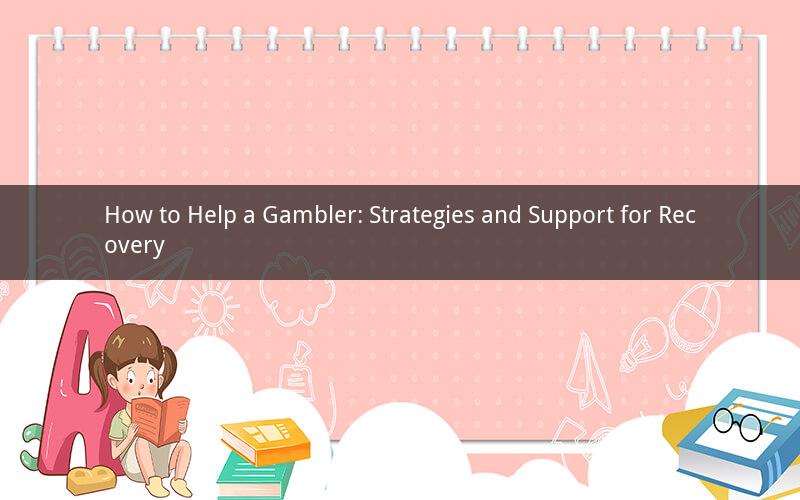
Gaming has become an integral part of our lives, offering excitement and entertainment to millions. However, for some, the allure of gambling can turn into an addiction, causing significant harm to their lives. If you know someone struggling with gambling, it's crucial to understand how to help them. This article delves into the strategies and support mechanisms that can aid a gambler in their journey towards recovery.
1. Recognize the Signs of Problem Gambling
The first step in helping a gambler is to identify the signs of problem gambling. These may include:
- Increased time spent on gambling activities
- Financial difficulties due to gambling debts
- Withdrawal from family and friends
- Emotional and psychological distress
- Engaging in risky behavior to fund gambling
2. Encourage Open Communication
Creating a supportive environment is vital for a gambler's recovery. Encourage them to open up about their struggles and listen without judgment. Be patient and empathetic, as it may take time for them to confide in you. Remember that trust is key in this process.
3. Support Them in Seeking Professional Help
Problem gambling is a serious condition that requires professional intervention. Encourage the gambler to seek help from a therapist, counselor, or a specialized gambling treatment program. These professionals can provide tailored strategies and support to address the underlying issues contributing to their addiction.
4. Encourage Financial Management Skills
Gambling addiction often leads to financial turmoil. Help the gambler develop better financial management skills by creating a budget, tracking expenses, and exploring ways to pay off debts. Encourage them to seek financial counseling if needed.
5. Promote Healthy Coping Mechanisms
Gamblers often turn to gambling as a way to cope with stress, anxiety, or other emotional issues. Encourage them to explore healthier coping mechanisms, such as exercise, meditation, hobbies, or joining support groups. These activities can help reduce the urge to gamble and provide a sense of fulfillment.
6. Provide Emotional Support
A gambler's recovery journey can be challenging and emotionally taxing. Offer your unwavering support and encouragement throughout the process. Let them know that you believe in their ability to overcome their addiction and lead a fulfilling life.
7. Encourage Participation in Gamblers Anonymous
Gamblers Anonymous (GA) is a self-help fellowship that provides a support system for individuals struggling with gambling addiction. Encourage the gambler to attend GA meetings, where they can connect with others who share similar experiences and receive guidance from sponsors.
8. Be Patient and Understanding
Recovery from gambling addiction is a gradual process that requires time, effort, and patience. Understand that setbacks may occur, and it's essential to remain supportive and non-judgmental. Celebrate the small victories and milestones along the way.
9. Educate Yourself About Problem Gambling
Arming yourself with knowledge about problem gambling can help you better understand the challenges your loved one is facing. Research the causes, symptoms, and treatment options for gambling addiction to be more informed and supportive.
10. Set Boundaries
It's essential to establish boundaries to protect yourself and the gambler during their recovery journey. This may include limiting contact with gambling-related activities or individuals who may trigger their addiction.
FAQs:
1. Q: Can a person overcome a gambling addiction on their own?
A: While some individuals may find success through self-help methods, seeking professional help and joining support groups like Gamblers Anonymous can significantly improve the chances of recovery.
2. Q: Is it necessary for a gambler to attend therapy?
A: Yes, therapy can provide a safe and supportive environment for a gambler to explore the underlying causes of their addiction and develop strategies for recovery.
3. Q: How can I help a gambler pay off their debts?
A: Encourage the gambler to seek financial counseling and help them create a budget to manage their debts. Consider offering to help them explore debt consolidation options or negotiate with creditors.
4. Q: Can a person be a responsible gambler?
A: Yes, with proper education and self-discipline, individuals can engage in gambling responsibly. It's crucial to set limits, track spending, and recognize the signs of potential problem gambling.
5. Q: How long does it take to recover from a gambling addiction?
A: The recovery process varies for each individual. Some may find success within a few months, while others may require years of commitment and support. The key is to remain patient and supportive throughout the journey.